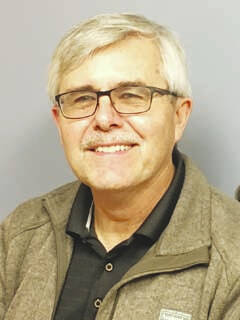The first time I met Glenn was at his brother, Kenny’s, and sister-in-law, Tressie’s wedding anniversary party. Kenny was a hospice patient, and I was his social worker. Glenn walked into the party with a swagger, was wearing dark tinted sunglasses, grabbed his belt, pulled up his pants, stuck out his chest and sat down at the kitchen table. I thought, “Who is this guy wearing dark sunglasses on an overcast day?” To be honest, I thought, “This guy is kind of cocky acting”. Little did I know that in the not-too-distant future, I would become Glenn’s hospice social worker, nor did he?
Glenn was admitted to hospice with end-stage liver cancer when he was 82 years old. When I arrived at Glenn’s and his wife, Joann’s home for my initial social work visit, Chrissie, Glenn’s hospice aid, had just finished bathing Glenn, and was in the process of changing Glenn’s hospital bed with Glenn still in it. She was struggling a bit and asked for my assistance. So we dispensed with formalities; I put on a pair of latex gloves and helped Chrissie change the bed. When you are a hospice worker that’s what you do.
Once Glenn was comfortably situated, I commenced with the formalities. I explained my role as their hospice social worker and spent time getting acquainted. Glenn grew up in Adams County and was nicknamed by his family, “Glenn Roy the wild boy”. He’d worked in a local lumber yard for a few years and then at “Shupert’s Tire Shop” in West Union. He became permanently disabled from a back injury at age thirty-seven.
Glenn and Joann “got saved at White Oak Church” when they were in their forties. Joann shared, “Glenn loved to play the guitar and sing the old-time gospel songs. He learned to play the guitar by listening to Johnny Cash. If Glenn was in the next room playing and singing you would think it was Johnny Cash. And Glen always liked to dress in black, so everybody called him, ‘The man black’.”
Glen talked about how much he loved God and enjoyed singing. He stated, “I played all over!” and then he directed Joann, “Get that picture of me playing and show him.” Sure enough he was dressed in black and was wearing his trademark dark sunglasses.
Glen then shared a story that turned me upside down and inside out: “I was playing at this church and there were some teenagers there.” Joann interjected, “They were sitting in the back and they put their sunglasses on to make fun of Glenn. It kind of hurt his feelings.” Glenn continued, “This one boy came up and said, ‘Do you think you are cool or something with those dark sunglasses on?’” I asked Glenn if he responded to the boy and he replied, “No, he didn’t know any better”. Glen went on to explain: “When I was thirty-seven years old I was working on a tractor-trailer tire when it exploded and knocked me all the way across the room against the wall. It permanently injured my back and damaged my eyes. Ever since then the sunlight really hurts my eyes. That’s why I have to wear dark glasses.”
A couple years earlier I made the same snap judgment about Glenn as that teen age boy! That teenage boy may have not known any better, but I should have. I confessed and apologized to Glenn, and we had a candid and wonderful conversation about how understanding is better than criticism. I told Glenn about Stefan, a twenty-year-old young man that I used to attend church with. Stefan would tell me about buying and collecting “Transformers”. I thought, “That’s kind of childish for a grown man to be buying and playing with toys.”, until Stefan told me the rest of the story: “I was in Learning Disability class in school. I had a hard time figuring things out, so I’ve bought and practiced putting together Transformers to help me learn how to figure things out.” Stefan had created his own type of occupational therapy. I had no idea!
We frequently have no idea why people do what they do. The Apostle Paul wrote, “For what man knows the things of a man except the spirit of man which is in him? (1 Corinthians 2:11). And Oswald Chambers wrote, “Never make the mistake of trying to use your life as a template for someone else’s.” (My Utmost for His Highest). That’s why understanding is better than criticism. Criticism is sterile and fruitless, but understanding is fertile. Understanding and acceptance extend to others the grace to risk, to be, to grow.
“For the Lord does not see as man sees; for man looks at the outward appearance, but the Lord looks at the heart.” (1 Samuel 16:7)
Loren Hardin was a social worker with SOMC-Hospice for twenty-nine years. He can be reached at (740) 357-6091 or at [email protected]. You can order Loren’s book, “Straight Paths: Insights for living from those who have finished the course” at Amazon and Barnes and Noble.





